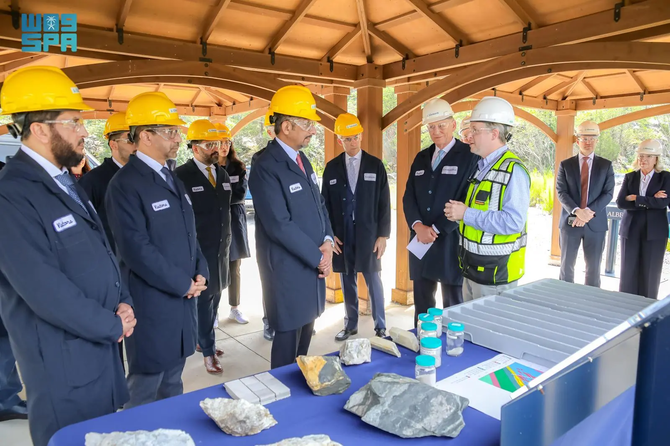
Saudi-US Talks Spotlight Lithium, Aerospace, and Supply Chain Cooperation
High-level visit aimed at strengthening bilateral economic ties covers key sectors.
Saudi Arabia and the US explored potential collaborations in lithium, aerospace, supply chain resilience, and other industries during a recent high-level visit led by Saudi Minister of Industry and Mineral Resources Bandar Alkhorayef.
The four-day trip aimed to bolster economic partnerships between both countries and align with the Kingdom's strategic objectives such as Vision 2030 and the National Industrial Strategy.
Discussions covered a broad range of sectors including energy innovation, mining, critical minerals, advanced manufacturing, specialty chemicals, food processing, medical devices, smart city technologies, and electric vehicle production.
Alkhorayef met with senior US government officials, industry leaders, and academic representatives to discuss strategic partnerships, knowledge transfer, and investments in technology, artificial intelligence, and innovative industries.
Key points from the visit include Saudi interest in cooperating with Albemarle Corp., a leading lithium producer, on technology transfer, joint ventures, and expertise exchange.
The Kingdom aims to strengthen its position in the global lithium market by 2027, with plans to extract lithium from brine water and produce 300,000 electric vehicles annually by 2030.
The visit also focused on aerospace collaboration, advanced manufacturing, industrial automation, and smart city development.
Alkhorayef met with Honeywell executives to discuss joint investments in smart industrial solutions, Internet of Things networks, and digital industrial infrastructure as part of Saudi Arabia's Future Factories Program aimed at transforming 4,000 facilities through automation.
Overall, the visit seeks to enhance Saudi Arabia's economic diversification efforts by building global partnerships, attracting high-quality investments, and promoting sustainable growth in alignment with Vision 2030.
The engagements are expected to boost bilateral trade and investment while expanding knowledge transfer across sectors.
The four-day trip aimed to bolster economic partnerships between both countries and align with the Kingdom's strategic objectives such as Vision 2030 and the National Industrial Strategy.
Discussions covered a broad range of sectors including energy innovation, mining, critical minerals, advanced manufacturing, specialty chemicals, food processing, medical devices, smart city technologies, and electric vehicle production.
Alkhorayef met with senior US government officials, industry leaders, and academic representatives to discuss strategic partnerships, knowledge transfer, and investments in technology, artificial intelligence, and innovative industries.
Key points from the visit include Saudi interest in cooperating with Albemarle Corp., a leading lithium producer, on technology transfer, joint ventures, and expertise exchange.
The Kingdom aims to strengthen its position in the global lithium market by 2027, with plans to extract lithium from brine water and produce 300,000 electric vehicles annually by 2030.
The visit also focused on aerospace collaboration, advanced manufacturing, industrial automation, and smart city development.
Alkhorayef met with Honeywell executives to discuss joint investments in smart industrial solutions, Internet of Things networks, and digital industrial infrastructure as part of Saudi Arabia's Future Factories Program aimed at transforming 4,000 facilities through automation.
Overall, the visit seeks to enhance Saudi Arabia's economic diversification efforts by building global partnerships, attracting high-quality investments, and promoting sustainable growth in alignment with Vision 2030.
The engagements are expected to boost bilateral trade and investment while expanding knowledge transfer across sectors.

